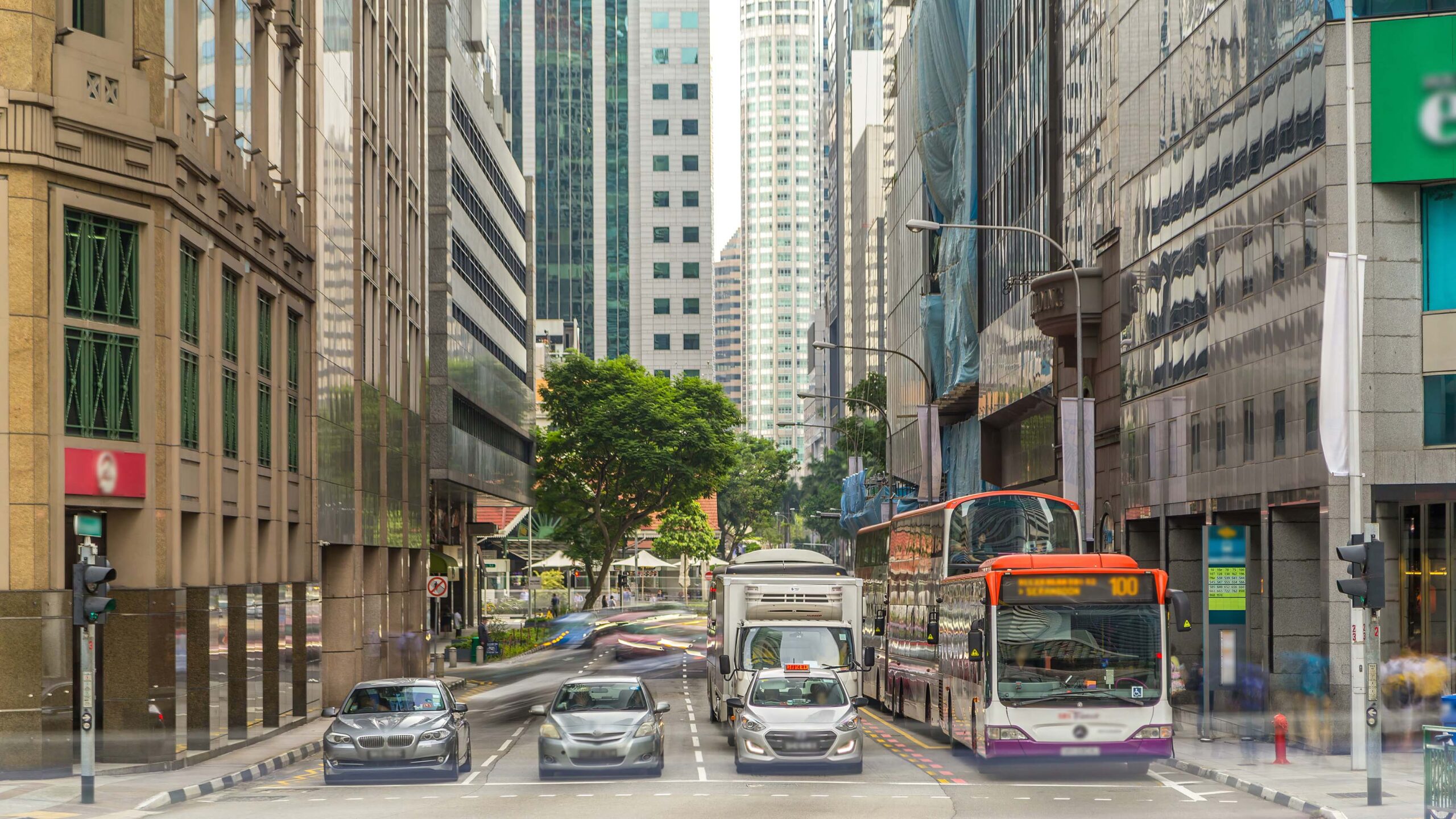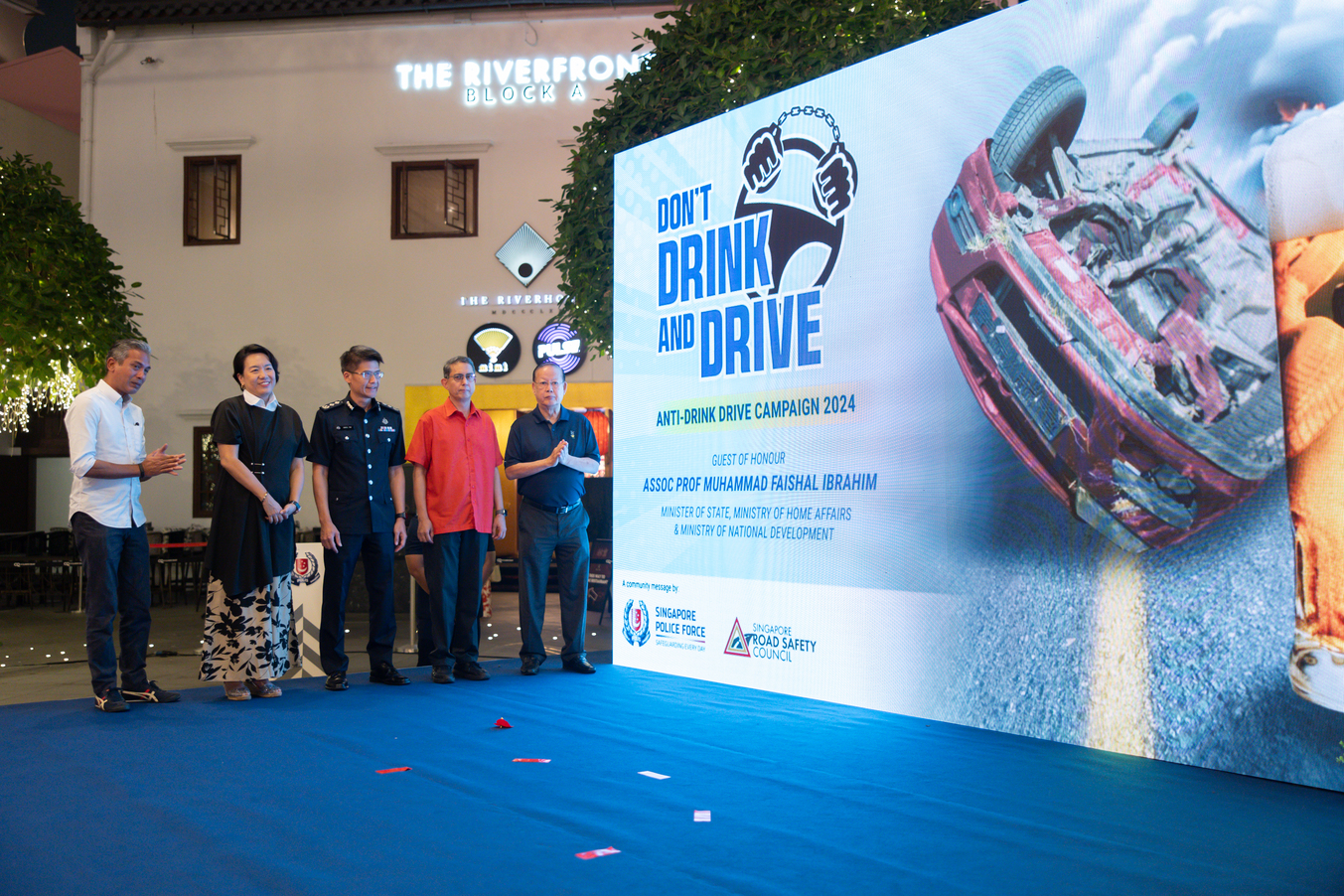Singapore’s road safety strategy is a model of balance, combining strict enforcement with innovative education initiatives. From leveraging technology to engaging young minds, the city-state’s approach ensures safer roads for all. This article explores how Singapore enforces road safety while fostering a culture of responsibility through education.
 Singapore’s reputation for efficiency and order extends to its road safety strategies, which are built on a dual foundation of enforcement and education. The Traffic Police (TP) and other stakeholders have adopted a comprehensive approach to reduce accidents, deter irresponsible behaviour, and instil lifelong road safety habits. Read on to learn more about the mechanisms Singapore employs to enforce road safety while educating its citizens, ensuring a safer environment for all road users.
Singapore’s reputation for efficiency and order extends to its road safety strategies, which are built on a dual foundation of enforcement and education. The Traffic Police (TP) and other stakeholders have adopted a comprehensive approach to reduce accidents, deter irresponsible behaviour, and instil lifelong road safety habits. Read on to learn more about the mechanisms Singapore employs to enforce road safety while educating its citizens, ensuring a safer environment for all road users.
The three-pronged approach: Education, Engagement, and Enforcement
At the heart of Singapore’s road safety efforts, the Traffic Police (TP) has intensified its three-pronged approach of education, engagement, and enforcement to improve road safety and curb issues such as drink driving. This holistic framework ensures that road safety is not just about penalising offenders but also about shaping behaviour and attitudes from a young age, working closely with partners and the community to foster a culture of responsible road use.
For instance, the TP conducts daily roadblocks to enforce traffic laws, including drink driving, which remains a persistent issue. In 2024, 1,778 individuals were arrested for drink driving, an increase of 6.9% from 1,663 in 2023. The Road Traffic Act 1961 was amended in 2019 to enhance penalties for drink driving, doubling the maximum fine to S$10,000 and increasing the imprisonment term to 12 months. These measures underscore Singapore’s commitment to deterring reckless behaviour through strict enforcement.
However, enforcement alone is insufficient. Recognising this, the Traffic Police (TP), together with the Singapore Road Safety Council (SRSC) and the Automobile Association of Singapore (AA Singapore), have intensified their efforts to educate the public about road safety through a range of collaborative campaigns and educational initiatives.
Annual anti-drink driving campaigns, road safety talks, and community roadshows are just some of the initiatives aimed at reinforcing safe driving practices. These programs are designed to reach a wide audience, ensuring that road safety messages resonate across different demographics.
Leveraging Technology For Safer Roads 
Technology plays a pivotal role in Singapore’s enforcement strategy. The TP has deployed cameras to monitor traffic and deter irresponsible behaviour. Additionally, the feasibility of using drones for traffic enforcement is under study, signalling a forward-looking approach to leveraging innovation for road safety.
Speed cameras are another critical tool in Singapore’s arsenal. A network of 87 speed cameras, including fixed, mobile, and average-speed cameras, is strategically positioned across the island. Data shows that the introduction of speed cameras has led to a decline in speeding violations, particularly in areas where they have been installed. This demonstrates how technology can complement traditional enforcement methods to enhance road safety.
Educating The Next Generation
Singapore’s commitment to road safety extends to its youngest citizens. The Singapore Traffic Games (STG), organised annually by the TP, the Singapore Road Safety Council (SRSC), and the Automobile Association of Singapore (AA Singapore), is a flagship initiative that teaches primary school children vital road safety skills through hands-on activities. The 2024 edition, held at the Road Safety Community Park, saw 300 students and 60 guests participate in activities ranging from pedestrian courses to go-kart driving.
One of the highlights of the 2024 STG was the premiere of a new road safety video, “Cross Safely,” which highlights the dangers of unsupervised children near busy roads. This initiative aligns with TP’s broader strategy to enhance road safety through education and engagement. By instilling good habits early, the STG ensures that future generations are well-equipped to navigate Singapore’s roads safely.
Community Engagement And Public Outreach

Image Credit: Singapore Road Safety Council
Road safety is a shared responsibility, and Singapore’s approach emphasises community engagement. The TP collaborates with various stakeholders, including government agencies, educational institutions, and non-governmental organisations, to promote road safety awareness. For instance, the Road Safety Programme, run by Hip Hip Hooray since 2013, targets children aged 4 to 6, teaching them the fundamentals of road safety through interactive activities.
Public outreach programs like the Ride Safe and Anti Drink Driving campaigns remind motorists to drive responsibly. The recently launched Road Safety Day initiative, which will be conducted across various heartland locations over the next two years, is another example of how Singapore is engaging the community to foster a culture of safety.
Infrastructure And Design For Safer Roads
Singapore’s road safety strategy also includes infrastructure and design measures. Speed management techniques, such as lower speed limits in School Zones and Silver Zones, have been implemented to protect vulnerable road users like children and the elderly. These zones feature reduced speed limits, appropriate signage, and assisted crossings to enhance safety.
Additionally, road safety audits, known as Project Safety Reviews (PSR), are conducted at various stages of road development to ensure that roads are safe and adequate for all users. This proactive approach to infrastructure design underscores Singapore’s commitment to preventing accidents before they occur.
The Role Of Driver Education
Driver education is a cornerstone of Singapore’s road safety efforts. The TP encourages motorists to enrol in refresher training courses to strengthen their defensive driving techniques and road safety awareness. For drivers who have accumulated demerit points, the Driver Improvement Points System Re-Training Course and Safe Driving Course provide structured programs to correct driving behaviour.
Beyond mandatory driving courses, organisations like AA Singapore offer workshops such as the Safe Driving Workshop, which focuses on modules vital to safe driving, including Speed Awareness and Space Management. These initiatives aim to enhance drivers’ knowledge and skills, fostering responsible driving habits.
These initiatives reflect Singapore’s belief that education is key to fostering responsible driving habits. By equipping drivers with the knowledge and skills to navigate the roads safely, Singapore is reducing the likelihood of accidents and enhancing overall road safety.
Singapore’s Road Safety Strategy
Singapore’s road safety strategy is a testament to the power of combining enforcement with education. Through strict penalties, innovative technology, and engaging educational initiatives, the city-state has created a comprehensive framework that addresses the root causes of road accidents. By fostering a culture of responsibility and vigilance, Singapore is not only making its roads safer but also setting an example for other nations to follow.



